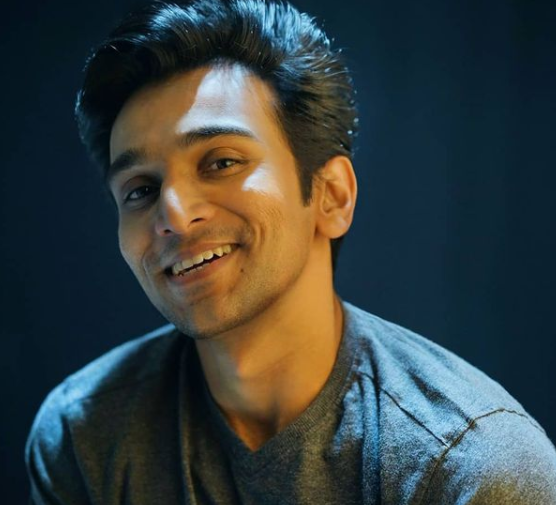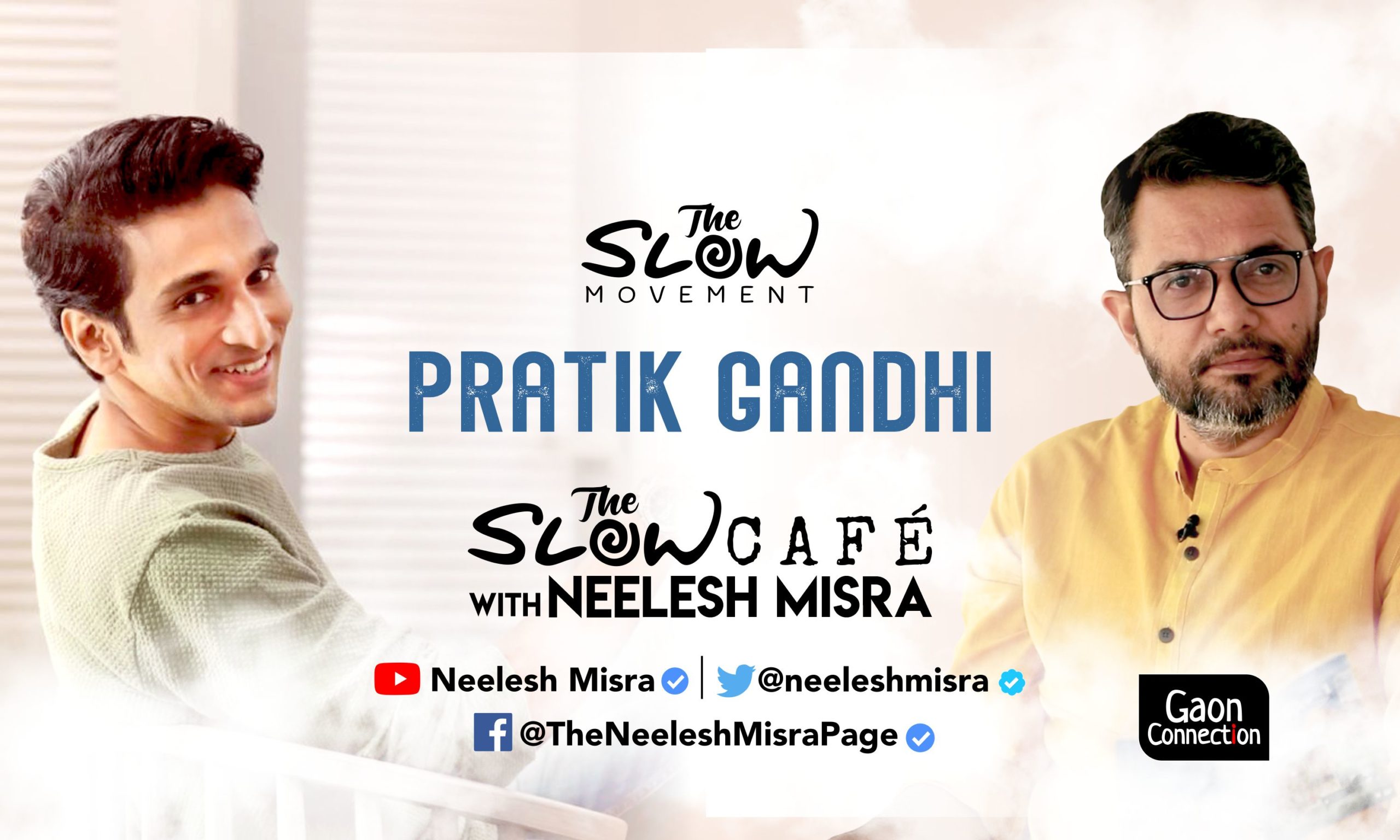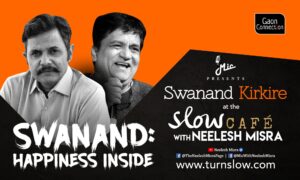Cricket is the flavour of the day, thanks to the Indian win at The Gabba, and it’s only fair to begin with that. In many ways, Pratik Gandhi and what he achieved with Hansal Mehta’s Scam 1992 on Sony Liv is something akin to what a depleted Indian cricket team managed against the full strength of the Aussies.
Speaking to Neelesh Misra in The Slow Cafe, Gandhi said that he looked at all those years of waiting as preparation for the sixer that was playing Harshad Mehta. “I think they prepared me for this role. Something similar to how that one-punch knockout in the boxing ring is the result of years of constant practice!”
One thing Gandhi is is earnest. And hearing him speak, you want good things to happen to someone so sorted, so clear about what he wants out of life. “Things happen when they have to happen. I remember watching a play at Prithvi theatre in Mumbai, and wondering when I’ll do something like this. I’ve worked with that team for fifteen years now. If something is meant for me, it will come to me,” he said, adding that what matters is how one reacts to a situation. “Your plan might not work. But, it only means someone else’s plan is working,” he smiled.

Gandhi, whose avatar as an industrial engineer finds a place on his social media bio too, says that engineering is a thought. “I look at it this way. Is it artistic science or scientific art? Thanks to engineering, I always see scope for improvement, I am able to look at an issue from a 360-degree angle. Both those aspects of me co-exist and help the other. They are second nature to me now. I’ve been on stage from school, I continued with it even during my stint in the corporate world. I’ve never seen them as different from the other,” he said.
What kind of person are you, Misra asked, to which Gandhi said without hesitation — “Simple, I think. Minimalistic, I see myself as a complete family man. Simplicity is the most difficult to achieve.” He manages this, despite the popularity of Scam 1992. “I think I have been prepared to handle this ‘danger’ of popularity. It was my dream to prove myself I can work in the mainstream, but theatre has prepared me to remain calm,” he said.
Theatre gave Gandhi a great time. t was also a great teacher. “One day, you’ll receive a standing ovation, the next nothing. It’s the same play, the same me. But, it’s different. If I take home the praise, my back will be heavy. I won’t be able to bring that lightness to my character,” Gandhi felt.

Did he feel any pressure to choose better after the success of Scam 1992? “That is always there, but every artiste should experiment. Ultimately, go with your gut. There were so many calls and messages in the first four-five days. But, I did not want to do anything different from what I’d done so far. What I did to get here, I’ll do to go to the next step too.”
Theatre is also where Gandhi first got to realise the fruits of being popular. A couple walked in backstage just before his play, and told him that they bought a ticket seeing his name. “We thought it would be good,” they told him. “It was not about the money, but they were willing to invest about three hours of their life, just going by my name. I realised I cannot take my career lightly.”
This means that success sits lightly on the actor, despite his being part of an industry where many stars speak about themselves in the third person. “My process so far has not been adulterated, and I would like to stick to that. I shall continue listening to my inner voice. Everything else will fall in place.”
Over the years, when Gandhi worked myriad jobs, including in human resources, it was his wide friends’ circle and family that kept him going. “You can have a great discussion, and with the same love, you can disagree with them,” laughed Gandhi.
This love for many things has its roots in the school Gandhi studied in, in Surat, Gujarat — Pravrutti Vidhyalaya. “I learnt farming, carpentry, using the charkha, music, bamboo sculpting… both practical and theory, besides regular subjects. We would take back the harvest home. Theatre was also an integral part of this life, and I learnt to observe everything around me, since everything was considered important. That shaped me,” Gandhi told Misra.
Along this way, Gandhi also learnt to question, because he believes that it helps one learn, and bring about change. That probably also came from the confidence his family gave him. During his early Mumbai days, when he juggled jobs, his father, the late Jayant Gandhi, told him to focus on acting, since that’s what he loves. “You will have a smaller home, smaller car, but you’ll be happy,” he told him. “My mother Rita wanted me to also be prudent. She would have been happiest had I landed a bank job,” shared Gandhi.

Gandhi also learnt how positive parenting can be a great influence. Gandhi’s father, who had learnt Bharatanatyam himself, thought nothing before finding a teacher for Pratik’s brother when he wanted to learn the dance form, when the teacher said only girls were being taught dance. In a way, Gandhi said, it was fitting that he discussed Scam 1992 with him, before his passing.
During his long years in the wings, Gandhi learnt to respect others’ time. Since he was working full time, theatre rehearsals were possible either early in the morning or late in the evening. “Once I got the script, I would stap riding to work. I would take the train or bus, so that I don’t waste time learning when I hit the rehearsal space. As such, people were adjusting with my hours and I did not want to trouble them beyond that.”
The engineer-actor admitted he was spiritual/philosophical about life, and had a way of looking at life. “We can do two things to succeed — either make fear our driver or passion. With fear, bitterness and disappointment set in earlier and sap your energy. When you make passion your driver, there is no time for anything else. No one told us our life will be smooth. So, when fear leaves the driver’s seat, you’ll start living life,” Gandhi told Misra.
The conversation between Gandhi and Misra, was in many ways, therapeutic. Because, you were hearing the words of someone who seemed to have cracked the technique of doing well as an outsider in an industry that is skewed in favour of insiders, but with nil bitterness. And, at a time when social media is rife with negativity towards the industry, it pays to also hear the words of someone who has made it on his own terms.



















